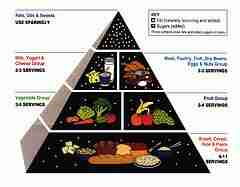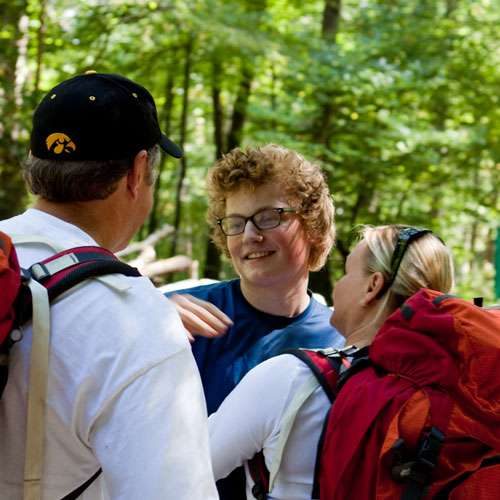 Food, water and shelter: before all else, these are our most basic human needs. According to Maslow’s Hierarchy of Needs (visual diagram located to the left), without this foundation of physical safety and wellness, we cannot progress and gain mental, emotional and social health. For teen mental health, all of these needs are truly essential.
Food, water and shelter: before all else, these are our most basic human needs. According to Maslow’s Hierarchy of Needs (visual diagram located to the left), without this foundation of physical safety and wellness, we cannot progress and gain mental, emotional and social health. For teen mental health, all of these needs are truly essential.
The domino effect
The three pillars of survival, (food, water and shelter) are important to remember when searching for causes and solutions to your child’s challenges with teen mental health. The neglect of one of those needs at the base of Maslow’s Hierarchy means that the needs identified in the tiers above can no longer be met, having a negative effect on teen mental health. But what if your child has been experiencing mental or emotional challenges, yet all basic needs were provided for? Their basic needs are being met but not satisfied.
“One of the most obvious, yet under-recognized factors in the development of major trends in mental health is the role of nutrition.” – Mental Health Foundation
Food: not just surviving, but thriving
Food is surviving, but nutrition is thriving. Food keeps you physically alive, but eating only foods that have low nutritional value (such as potato chips) can lead to a well-fed, yet malnourished state. Our bodies absorb the nutrients needed from the foods consumed. Without the proper nutrition, the foundation pillar is there, but in bad condition. Without a good foundation, there is no thriving or progression and teen mental health ultimately falters.
“Nearly two-thirds of those who do not report daily mental health problems eat fresh fruit or fruit juice every day, compared with less than half of those who do report daily mental health problems. This pattern is similar for fresh vegetables and salad. Those who report some level of mental health problem also eat fewer healthy foods (fresh fruit and vegetables, organic foods and meals made from scratch) and more unhealthy foods (chips and crisps, chocolate, ready meals and takeaways).” – Mental Health Foundation
Building a strong foundation for teen mental health
In order to have good teen mental health, there must also be good teen body health. The foundation pillar of nutrition is made of four essential building blocks known as “macro-nutrients.” When the healthier options of each of these categories are combined in the correct amounts, they create a balanced diet.
- Carbohydrates: are food your body converts to energy require for functioning (so … most foods). There are two kinds: simple and complex. Simple carbs are typically not very healthy such as white bread and their energy dissipates very quickly. Complex carbs take longer for the body to break down, providing more sustained energy.
- Proteins: help maintain and build the body’s cellular structure through replacing structural proteins. Protein is in foods such as meat, legumes, nuts/seeds and some fruits and vegetables.
- Fiber: is in all plants (fruits, vegetables, grains, nuts and seeds). It aids in digestion, lowering cholesterol and much more.
- Lipids (fats): The easiest way to understand lipids are beneficial fats, typically coming from vegetables, and non-beneficial fats, typically from processed foods and meats.
“A balanced mood and feelings of well-being can be protected by ensuring that our diet provides adequate amounts of complex carbohydrates, essential fats, amino acids, vitamins and minerals and water.” – Mental Health Foundation
Trails Carolina teaches holistically and healthily
Trails Carolina believes in the holistic-health approach for teen mental health. We believe that the body and the mind affect each other, and, therefore, the health of both should be a priority when caring for your child and their teen mental health.
Call us today, at 800-975-7303, for more information on our holistic-health approach & to get your child the help they might need.
Get started today
Contact us today to learn how Trails Carolina can help your family
Trails saved my daughter’s life. Amanda is an amazing human and a brilliant therapist. I am so grateful to her, Science Steve, and the other wonderful people who could reach my daughter at a time when I could not.
Margot Lowman August 2022
Great life changing experience for our son. After becoming addicted to gaming during covid he was very depressed. At Trails he experienced the wilderness, Science Steve, learning survival skills and top notch therapy and support etc… I highly recommend! This gave our son and our family a renewed family bond full of love and excitement about his bright future.
Winnifred Wilson July 2022
Outstanding clinical work and superb staff! There’s a great culture at this company and it shows with how they engage with families/clients.
Kristin Brace June 2022
Discover If Trails Is The Right Program For Your Child
Take our short online assessment and help us better understand how we can help your family.




